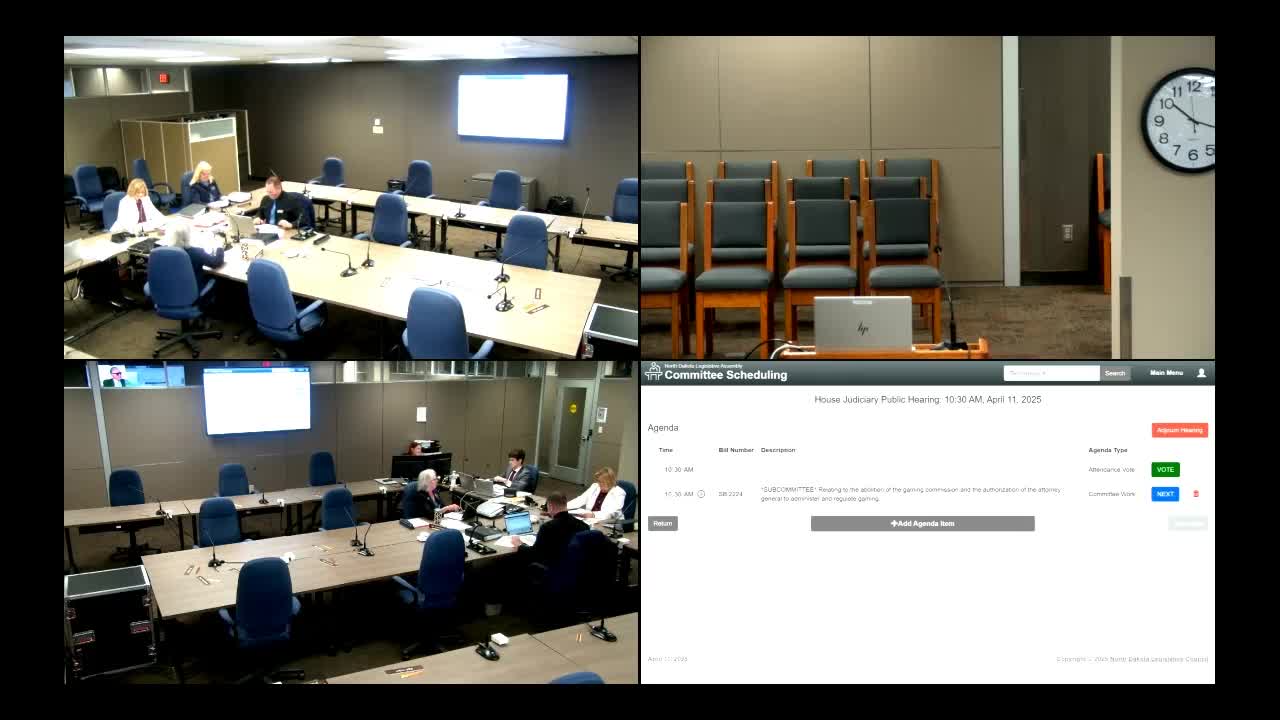Subcommittee clears language to keep attorney general orders stayed during appeal in SB 22-24 amendments
Get AI-powered insights, summaries, and transcripts
Subscribe
Summary
A legislative subcommittee revised Senate Bill 22-24 to combine prior amendments and to add language making attorney general orders stayed through the statutory appeal window; the panel approved the amendment by voice vote and asked staff to finalize the draft for committee consideration.
A Judiciary subcommittee reviewed and approved an amendment to Senate Bill 22-24 that clarifies the timing of stays on orders issued by the attorney general, directing that such orders be stayed through the period in which a party may file an appeal under state administrative law.
The change, incorporated into the combined printed version labeled 01/2005, also folded in earlier amendments from Representative Koppelman, a one-word change credited to Nelson, and additions requested by Senator Murdaugh and others, according to remarks from subcommittee members. Speaker 1, a subcommittee member, said the new 01/2005 version "combined all 3 versions of the bill" and included the changes being discussed.
The amendment adds a cross-reference to the state appeals provision so that an order of the attorney general is "stayed pending the expiration of the time within which to appeal under 28-32-42, and pending the judgment of the District Court or further appellate review," language proposed during the meeting and discussed on the record by Speaker 3, a subcommittee member.
Why it matters: Subcommittee members said the explicit cross-reference was intended to close a gap between issuance of an attorney general order and the point at which the order might be stayed during the administrative and judicial appeal processes. Speakers noted the bill already provides that an order will be stayed pending final adjudication, but they wanted the automatic stay to clearly extend from issuance through the statutory appeal window so regulated entities are not immediately subject to enforcement while deciding whether to appeal.
Discussion and related changes: Members also reviewed non-substantive placement changes and other amendments in the combined draft. The group confirmed that a paper ballot provision appears under the Section 2 amendment at page 4, line 23, and that a separate addition on page 4, line 8, would require the commission to meet at least quarterly and permits an executive session under the cited provision (spoken in the record as "section 40 four-four-nineteen 0.2"). Speaker 1 said these items were included in the consolidated 01/2005 draft.
On appeal timing, subcommittee members talked through statutory windows. Speakers referenced the Administrative Agency Practices Act and the appeals provision cited in the meeting as 28-32-42; Speaker 5, a staff member, read the statute aloud during the discussion and confirmed the 30-day/60-day timing references that appeared in related statute text. The group concluded the subcommittee did not need to restate the appeal period in the bill if it cites the existing appeals statute, but opted to insert a cross-reference to make the scope of the automatic stay explicit.
Procedure and next steps: Speaker 1 moved to adopt the amendment adding the stay language and the combined changes; Speaker 2 seconded. The panel approved the amendment by voice vote when members said "I." Members instructed staff (identified in the record as Sean, Shane and Wyatt) to prepare the final draft for the full committee and to calendar a follow-up meeting immediately after the floor session to consider the finalized version.
No formal roll-call vote was recorded on the record in the transcript provided. The subcommittee planned to bring the finalized amendment forward to the full committee once staff confirms the statutory citations and final language.
